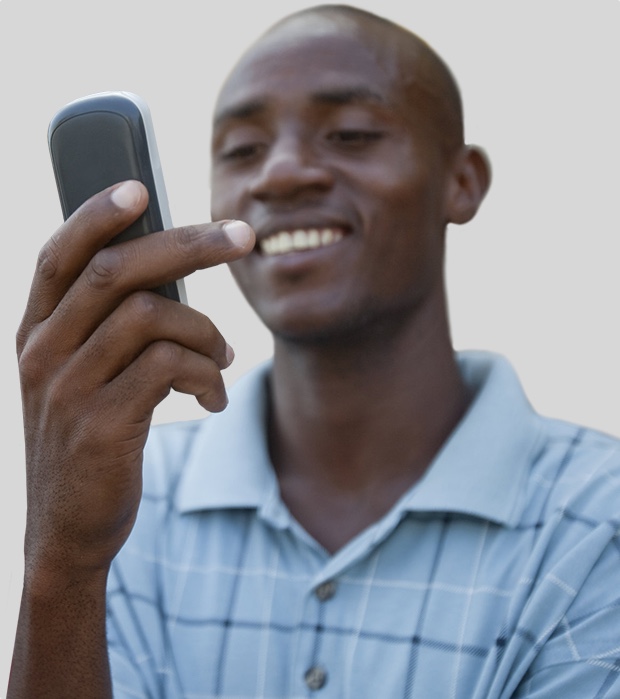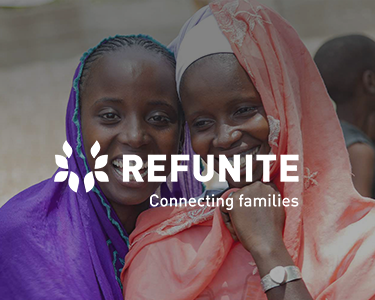During the Second Congo War (also known as the Great War of Africa), which began in August 1998, there were violent clashes between the Mai Mai, a community-based militia group, and the Rawanda-allied and ethnically Tutsi, Banyamulenge-dominated rebels.
It was in the months immediately following the start of the war that the Mai Mai attacked Arcel*, aged 9 at the time and the fourth eldest, and his nine-member family in their village home in South Kivu. The entire family – four sons, three daughters, and two parents – were scattered in different directions.
Arcel found himself fleeing along into the forest on foot not knowing where the rest of his family had gone. He ran to Uvira, a village where he and his family had visited in the past, near the Rwandan border. Over the next two days he continued on foot, crossing the Rwanda border where he stayed for about three months as a refugee with the assistance of UNHCR. However, as the conflict near the Rawanda-Democratic Republic of Congo (DRC, formerly called Zaire) border escalated, he felt unsafe and was assisted by a friend in his community to travel overland to Uganda by bus over two days. In Kampala, Arcel met a businessman who was traveling to Nairobi, Kenya and explained his situation and the businessman offered him a ride.
Upon arriving in Nairobi, Arcel asked around the bus station to find out where other Banyamulenge Congolese might be living and met someone from his community, living in Ngara District, Nairobi. His newfound friend offered him shelter. Arcel stayed with him for one year while he learned how to survive and barely earned a subsistence living cleaning houses.
In 2009, as living in Ngara became too difficult and costly, he decided to move to the nearby area of Kasarani, home to many other Banyamulenge refugees. When asked about his experience, Arcel recalls that he had no youth and life as a refugee is very difficult. Currently living in Kasarani, Arcel has been working as a daily wage laborer in the construction industry and earns an average of 175 Kenyan Shillings (2.1 USD) daily, when there is work available. He says that at least now he is able to pay rent to share room.
In 2011, Arcel attended a community forum hosted by Refugee Consortium of Kenya (RCK), in Kasarani. It was there he met with RCK monitor and community leader, Sony Maragizi, who had been hired to work on the Refugees United (RU) project led by RCK. He heard Sony talk about RU and though he said he didn’t completely understand the tool, he registered his profile with Sony’s assistance because he was curious about how it could help him find his family.
Over the next six months, Arcel slowly but steadily taught himself how to use the tool but his access was limited as he didn’t have an internet-enabled phone and limited funds to go to an internet (cyber) café. He often sought out Sony around the local community and at church and asked him to use his internet-enabled phone to conduct searches. He said Sony was always helpful and helped him learn how to use the RU tool.
Once he learned how to search, Arcel immediately began to search for all his family members. Over the course of the next six months, he found some profiles on the RU platform whom he thought might be his older brother, nicknamed Ruhumuriza. Arcel used the RU messaging feature to reach out to various people and asked questions and used private words that would only be known by his brother. From that process, Arcel and his brother, Ruhumuriza, reconnected. “I felt so happy to know where my family was,” he recalls.
His older brother lives as a refugee in Uganda and is three years older than Arcel. Once they were certain of each others’ identity, Arcel and his brother exchanged mobile phone numbers. Due to airtime costs, he and his brother don’t speak as often as they would like but try to connect over the phone at least twice a month. “We talk about survival and how to get assistance to live,” Arcel says about his conversations with his brother.
Arcel and Ruhumuriza do not currently have plans to reunite in person as it is not economically feasible for them. However, they have hope that once day it will be possible. Arcel continues to use the RU tool to not only continue communicating with his brother but to also continue searching for other family members and friends. He has told others in his community about RU and referred them to Sony for registration.
* All names have been changed by RU to protect the identity of the individuals.
Interview/Story told to Camille Ramani of RU and translated by Sony Maragizi, RCK Monitor


